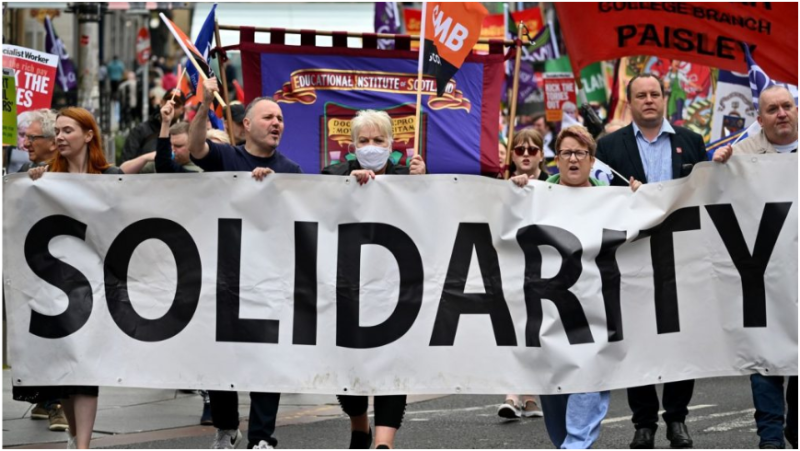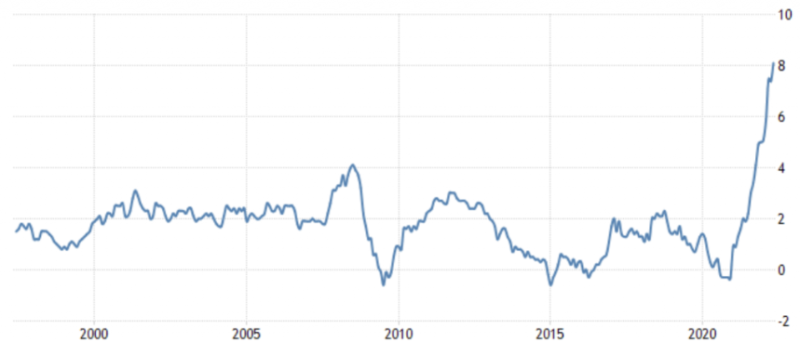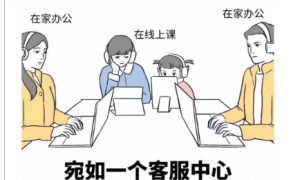Are we heading toward a summer of discontent in Europe? Can we foresee a hot autumn on the Continent? It would be hasty to make such statements, but new strike activity is beginning to unfold among sectors of several countries’ working class. Inflation reached 8.8 percent as a European average in May (with higher rates in countries like the UK and Spain). After years of inflation below 1.5 percent, this is a significant change that is causing a fall in the population’s purchasing power, especially among the working class. many analysts are already talking about the possibility of stagflation: a combination of recession and inflation.

This is in addition to the political instability of several governments and a widespread dissatisfaction with the traditional parties. The latter was expressed in France in the last elections, with high abstention and the growth of Marine Le Pen’s far-right party and of the center-left coalition grouped around Jean-Luc Mélenchon. Emmanuel Macron lost his absolute majority in the National Assembly and now faces a five-year period of great political uncertainty. Another government in crisis is that of the UK, where Prime Minister Boris Johnson is stepping down.
In this context, recent weeks have seen strikes taking place in key sectors, including transport, steel, ports, and public services, as well as in more precarious sectors. Although there are differences among these countries, the strikes are opening a breach in the climate of “national unity” that governments tried to impose a few months ago, when the war in Ukraine began. In this article we review some of these labor conflicts in the United Kingdom, Germany, France, Italy, Spain, and other countries.
A Summer of Discontent in the United Kingdom
Last month, more than 50,000 railway workers in the United Kingdom went on strike for three days by the National Union of Rail, Maritime and Transport Workers (RMT). The workers practically paralyzed the train network, converging with a 24-hour strike on the London Underground, involving another 10,000 workers. This was the biggest public transit strike since Margaret Thatcher’s government.
In the British press, the idea of a summer of discontent has become commonplace. The reference is to the winter of 1978–79, when a wave of strikes in the public and private sectors combined with rising inflation, unemployment, and economic stagnation. The current situation is not as acute as it was then, when a wave of labor strikes shook Britain from north to south. But inflation in the United Kingdom reached 9.1 percent in May — a 40-year high — and the Bank of England forecasts that it will reach 11 percent in the coming months. In addition to the broader inflationary trends, there are the Brexit-related shocks — for example, food prices have risen 6 percent in the last two years. This is why many analysts point out that the ghost of the 1970s is haunting the isles — something the British government is using, in turn, to build an anti-union narrative against strikers. Such was the case when Treasury Secretary Simon Clarke stated that, if double-digit wage increases were to take place in line with inflation, this would cause a “wage-price spiral,” as in the 1970s, and would be “destructive.”
The revival of labor disputes in the United Kingdom could extend beyond transport. Teachers, postal workers, doctors, and nurses in the National Health Service (NHS) are also considering going on strike.
The transport strike is having a great political impact. The leader of the RMT union, Mick Lynch, has become a star of the labor world on social media as his TV interviews go viral. There, he refutes the idea that a wage increase can cause an inflationary spiral. He points out that large companies have made fortunes and, in the case of transport companies, have received more than £500 million from the state as aid during the pandemic. What these companies do not want is to cut their profits. A few weeks ago, when asked about the possibility of extending the conflict, he even flirted with the idea of a general strike: “I would accept a general strike if we could get it.” This type of strike action on a national scale has not taken place in the UK since 1926, the only general strike in UK history. Accused by the conservative press of being a “Marxist” who wants to nationalize the means of production, Lynch clarifies that his intention is to rebalance the distribution of income, because the superrich are earning much more than before, while inflation is causing wages to drop in real terms.
The cost of living crisis is affecting workers in both the private and public sector. The NASUWT — the Teachers’ Union and the National Education Union (NEU), with 460,000 and 510,000 members, respectively — have announced that they will consult on the possibility of going on strike. “Teachers are suffering, not only from the cost-of-living crisis that the whole country is dealing with, but from 12 years of real-terms pay cuts,” said Patrick Roach, general secretary of the NASUWT. He also pointed out that many teachers are forced to work more than one job or resort to food banks to cope with the rising cost of living.
On June 18, both unions took part along with others in a mobilization in London called by the TUC, the largest British trade union confederation. They demanded wage increases, an end to zero-hour contracts, an end to racism in the workplace, the decolonization of the school curriculum, and higher taxes on energy companies. Among the demonstrators’ slogans were also some referring to the war, such as “Cut war budgets, not social services,” although this important issue was not among the union’s demands. The unions have received the support of social movements such as environmental groups, which are proposing corporate taxes to curb climate change.
The Johnson government is responding with Thatcher-like actions and rhetoric, seeking to pit transport workers against the rest of the working and middle classes — something that Johnson already did as mayor of London, when subway workers went on a two-day strike — as if the former were “privileged” people who impose their particular interests on the rest by preventing them from going to work. The Conservatives argue that the unions’ proposed wage increase is impossible, and they are trying to pass legislation that would allow them to replace strikers with agency workers.
The government is coming off the back of a major crisis with the no-confidence motion against Johnson, lost by-elections in two constituencies, Wakefield and Tiverton & Honiton. The government tried to strengthen Johnson with its anti-union position against the strikers; however, the mounting crises and mass resignations among Conservative cabinet members caused Johnson to step down. For Labour, the strike and labor unrest has exposed the party’s divisions. Their leader, Keir Starmer, has made the case that strikes are “not a good idea,” raising tensions with the unions. They have even threatened Labour MPs with disciplinary action if they attend the pickets.
“Block Prices, Not Wages”: Strikes in the Public, and Strategic, Sectors
Strikes against the consequences of inflation have also occurred in Belgium this week. A general public-sector strike took place on June 20, called by several unions. Inflation there reached 8.97 percent in May, also the highest rate in 40 years. The strike was particularly felt in transport, public education, and airports (the Brussels airport had to cancel all departures). The slogan “Block Prices, Not Wages” led the central demonstration in the capital. Belgium has an important tradition of general strikes and, along with France, has had the highest rates of strike days in recent years. But it also has a long tradition of union bureaucracies that call for pressure strikes and then sit down to negotiate with the government and the bosses, containing the workers’ unrest.
At the European level, one of the sectors that has seen the most strikes in recent weeks is transportation, including railways and airports. Many European airports are experiencing delays, owing to a combination of labor disputes and staff shortages. There are flight cancellations and long queues for boarding, while air traffic controllers, pilots, and cleaning staff are threatening strikes at various points.
According to some analysts, there is a bottleneck in the travel and tourism sector. Despite being one of the sectors that laid off the most workers during the pandemic, it recovered faster than expected, even with staff shortages. Last month, there were also strikes by staff of the low-cost airline Ryanair in Belgium, Spain, France, Italy, and Portugal on the weekend of June 25–26. The strikes also affected the staff of Brussels Airline, British Airways, EasyJet, and Volotea.
In Germany major labor conflicts are also developing in some strategic sectors such as ports, steel, and hospitals in which there have been four major strikes in recent months.
On Thursday, June 23, a joint 24-hour strike of Germany’s largest ports took place for the first time in 40 years, with the participation of 12,000 workers. The unions demanded a 14 percent wage increase (i.e., above inflation), and the strike affected the ports of Hamburg, Emden, Bremerhaven, Bremen, Brake, and Wilhelmshaven. More than 4,000 dockworkers marched in Hamburg on the day of the strike, surrounded by police. The port employers’ association considered this a “totally irresponsible action” amid the supply chain crisis and blockages in container traffic. But it is precisely this advantage that the dockworkers could use to impose their demands. A few weeks ago, the unions had called for a “warning strike” of a few hours to put pressure on the negotiations, but these did not occur. In this sector, there is a high unionization rate of about 70 percent.
Another powerful strike took place in the steel sector, where the German unions of the powerful IG Mettal reached an agreement on a 6 percent wage increase, which, although still below inflation, is the highest won in the sector for 30 years. By contrast, the strike in the social services and gardening sector had a bitter result: the wage increase, which was also below inflation, caused unrest in sectors of the rank and file. There the union bureaucracy played a demobilizing role, refusing to hold massive assemblies to decide on the future course of the conflict. Finally, for the last seven weeks a major strike has been underway in the university hospitals of the North Rhine-Westphalia region for better working conditions, more personnel, and a lower workload after the hardest period of the pandemic.
In France, class struggle has been an almost constant part of the political scene in recent years, and there has been a recent “epidemic” of strikes for wage increases. Inflation reached 5.2 percent annually for the first time since 1985. According to a study by the Bank of France, wage increases of 2.5 to 3.5 percent were negotiated in 2022 and an average of around 1 percent since 2014. This leaves wages lagging behind inflation, with rising prices being felt especially in electricity and gas bills, food, and services.
Gaëtan Gracia, a delegate from the General Confederation of Labor (CGT) and a member of the editorial staff of Révolution Permanente, explained in a recent article that “the discrepancy between inflation and wages is increasingly becoming a central political issue. The question of purchasing power has for months become the primary concern in France. It is the sign of a growing anger of which the epidemic of wage strikes is one of the expressions.” Gracia points out that these strikes are partial and short lived, but they are occurring in places where there has long been no union activity, which could indicate a “workers’ awakening.” There have been strikes of this type at stores like Decathlon, Leroy Merlin, in aeronautics companies such as Daher Aerospace, and in the workshops of the Haute-Garonne, which had not experienced a strike for 50 years. At the end of 2021, journalist Khedidja Zerouali published a series of articles in Mediapart on what she called “low-wage strikes,” referring to precarious, low-wage sectors that had to continue working during the pandemic, and are now demanding better conditions. The strikes, however, are not limited to these sectors — recent weeks have seen strikes by railroad workers, RATP urban transport personnel, the Marionnaud perfume chain, teachers, and airport personnel. Most recently, the CGT called the 35,000 workers of Total Energies to a 24-hour strike on June 24.
In Italy the situation is mixed. On May 20, there was a general strike of the entire rank-and-file trade union movement on May 20. Meanwhile, on May 30, there was a strike in education, with mixed participation, and on June 17 there was a strike in transport, promoted by various organizations of the rank-and-file trade unionism. But in Italy what is perhaps most interesting is the mobilization led by several rank-and-file trade unionist unions in which they unified the struggle against inflation and the struggle against the war and the shipment of arms to Ukraine with the central slogan: “Lower the guns, raise wages.”
Finally, in Spain, some important strikes are beginning to take place in sectors such as metal, healthcare, and others. The nine-day metal strike in Cádiz, at the end of 2021, had a strong national impact. The images of repression at the picket lines by national police of the “most progressive government in history,” the PSOE-Unidas Podemos government of Pedro Sánchez, spread on social media. There was also recently a 16-day strike in the metal sector in Cantabria while a metal strike began in Biscay. A national coordination of metal strikes and other sectors against the inflation, with joint demonstrations to Madrid, as happened in 2012 with the mining strikes, could radically change the national political climate and awaken enormous solidarity. But the bureaucracies of the major unions CCOO (Workers’ Commissions) and UGT (General Union of Workers) are in a total pact with the government and the bosses, so far putting all their effort into avoiding such a scenario.
A Program for Wage Increases, against Inflation and the War
European inflation has remained below 2 percent in the last 10 years, with several periods below 1.5 percent and even times at zero percent. Upward trends began in 2021, reaching 4.1 percent in October of that year, and 5.1 percent in January 2022. Analysts attributed this to the exit from the pandemic, the supply chain crisis, the energy crisis, and other factors. The effects of the war in Ukraine and sanctions have been felt ever since, with prices climbing steeply from February of this year to current figures that can only be compared to the 1970s. In fact, inflationary values higher than the current ones have been recorded only in 1974–77 and 1980–83.

European Union inflation index, last 25 years.
In a recent article, Rafael Poch addresses the projected increase in world hunger that the news media have begun discussing. Western sanctions against Russia, Poch explains, are much more harmful than the Russian blockade of Ukrainian ports. The sanctions are already generating a huge increase in the prices of food, gas, oil and fertilizers, which is having a greater impact on the poorest countries, causing shortages and rising prices of basic foodstuffs. According to a report by the UN Food Programme, the number of hungry people in the world will increase this year from 276 million (prewar level) to 323 million as a consequence of the open crisis. This is spreading social unrest and causing new revolts against governments to break out, as we have recently seen in Sri Lanka, Albania, Pakistan, and Tunisia. There has also been unrest in Turkey, where inflation has reached 70 percent and the cost of food has skyrocketed in recent months.
Although this is not the situation in the richer countries of Europe, the sanctions imposed on Russia are having a boomerang effect, accelerating previous inflationary trends and reducing workers’ purchasing power. Inflation is hitting hard after two years of the pandemic, which means many workers have had to make great sacrifices. At the same time, these years made it clear who is “essential” for the functioning of society — workers, not bosses — increasing confidence that it is possible to go out and fight for more.
Asked on several TV programs about the possibility of an inflationary spiral, the leader of the English railway workers answered that what has increased astronomically are the profits of the capitalists and pointed to the billionaires and the subsidies received by the companies during the pandemic. In 2020 the European Council agreed on the Covid crisis exit aid fund known as Next Generation EU, which consists of 750 billion euros for all member states. With added funds from the European budget, the aid fund contained around €2.018 billion. Most of this money, which was reallocated by the national states in the form of loans or nonrepayable aid, has gone to large companies. This is without taking into account the bailouts carried out during the pandemic, through mechanisms such as full subsidies from state funds for workers’ salaries during temporary layoffs and tax exemptions. This is a huge transfer of public resources to private companies, which has increased European countries’ indebtedness. But when inflation arrives, the adjustment is made in wages.
In the face of this, workers’ struggles for wage increases are emerging as a new phenomenon, and in some places they are having great political impact, as is currently the case in the United Kingdom. There, labor questions are once again on the table: the right to picket, the importance of strikes, and the profits accruing to great fortunes. If the British railway workers, the steel workers in Germany or the metalworkers in Biscay were to win significant or above-inflation wage increases, this would increase the self-confidence of many workers, and conflicts could spread. The demand for wage increases at the level of the cost of living (for example, in France, 300 euros are demanded as an emergency), together with the demand for wage readjustment in accordance with inflation, could unify the working class as a whole, since the same demand is made by private and public sectors, permanent and temporary workers, from strategic or more precarious sectors.
In a recent article, Spanish journalist Antonio Maestre points out that “inflation destroys governments” and that
the only way out is price control and an ambitious fiscal policy of raising taxes on speculators and large capital holders. That is the only progressive way out of inflation. So it won’t happen. There is no chance that the government will establish an aggressive, almost confiscatory, tax policy for large fortunes and corporations that can combat inflation. That will be the certification of their burial. They would rather die than go to war with the power of the oligarchies and radically break liberal dogmas.
As we can see, measures like price controls in basic sectors such as food, fuel, and energy are beginning to appear in the debate. But governments are unwilling to touch the profits of capital. In the strategic energy sector, which is one of the sectors that is weighing most heavily in the increase of tariffs throughout Europe, companies ought to be renationalized under the management of workers and users. Not only to lower the stratospheric tariffs but also because — as the workers of the Total refinery in Granpuits, France, showed in the midst of the pandemic — the workers are the only ones willing to face a real reconversion of the sector and a transition to renewable energies, something key in the fight against climate change to avoid the destruction of the planet.
Among the largest and most profitable companies in Europe today are food giants such as Nestlé and Unilever, and energy companies such as Total and Shell. The 10 richest European billionaires in 2022 according to Forbes add up to a collective wealth of $590 billion, and have increased this by $40 billion more than last year. only a program that targets the profits of the multinationals and superrich can provide an outlet for the most urgent needs of working people.
The working class in Europe is a powerful social force that could paralyze transport, ports, banks, metal and telecommunications companies, public services, and cleaning. Far from the predictions of those who declared the end of work, it is a multiracial and widespread working class that occupies strategic positions in production and circulation. A working class that in recent decades has become more feminized than ever, and that has incorporated several generations of migrants among its most precarious and exploited sectors.
The union bureaucracies do everything possible to dilute this social force by means of pacts from above or pressure strikes to decompress, avoiding coordination and the calling of general strikes. And in many places where they put themselves at the head of wage struggles, they seek to quickly deactivate the conflict, accepting agreements for increases below inflation. They are the best safeguard of capital and of the capitalist states within the working class, passivizing its social force and channeling discontent into electoralism. Asked a few days ago on TV whether a general strike might be called (one has not been called since 2012), the leader of the Spanish trade union CCOO answered no, because general strikes “are political.” In a well-oiled division of tasks with the parties of social liberals and the institutional Left, the union leaders act prevent the working class from asserting all its power in the current wage struggles, in order to then call on workers to vote for a lesser evil against the right wing.
These union leaders also avoid linking the struggle against the rising cost of living with the prospect of a mass mobilization against war and the rearmament of imperialist governments, since this is one of the most aggravating causes of the current inflationary situation. How different it would be if union demonstrations or strikes were aimed against the huge spending of military budgets, sanctions on Russia, arms shipments, and the militaristic policy of imperialist governments!
In the post-pandemic situation, amid a war that is dragging on, the question arises whether the current strikes can be extended, win important victories, coordinate themselves, and adopt broader and more long-term goals. For that, it will be key for those who bet on workers’ democracy from the rank and file, assemblies and delegates, to break the siege imposed by the union bureaucracies.
We cannot be sure that this will happen, but it is a fact that more and more economic, social, political, and geostrategic contradictions are accumulating in Europe. And this new working-class activity, if it continues to develop, can mark a sea change on the continent. In the previous cycle of class struggle, with the eruption of the yellow vests movement in France, workers often intervened in diluted, popular actions together with broader, intermediate sectors. But now they are beginning to use more militant working-class methods, such as pickets, strikes, and blockades. The situation is uneven, and in some countries it is more likely that trends could move in this direction. In France, for example, class struggle has been much greater in recent years. Now the Macron government faces a five-year period of great political instability. This situation of crisis from above and enormous unrest from below undoubtedly opens opportunities for the working class to begin to intervene in other ways in the political arena.







